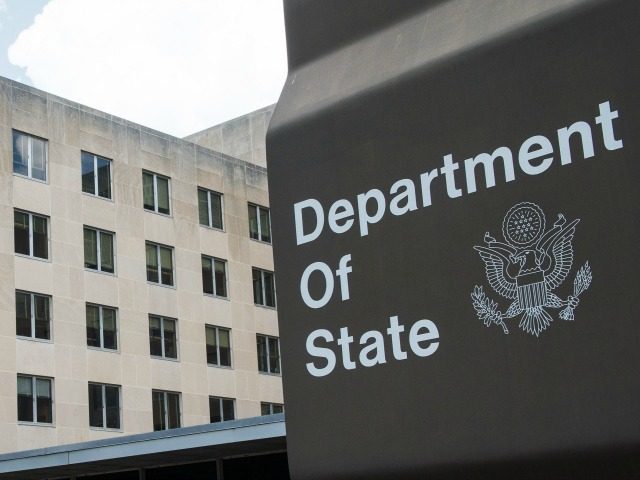Tightening our immigration and refugee programs is a matter of national security (despite what some out-of-control judges may think), and it is also a matter of cost.
In this regard, we have filed a lawsuit against the State Department for records on the number of “Refugee Travel Loans” issued by State’s Bureau for Population, Refugees, and Migration to the United Nation’s International Organization for Migration from 2010 to the present.
We are also seeking the number of loans defaulted upon and the amount of money written off on each defaulted loan. We filed the suit on January 24, 2017, in the U.S. District Court for the District of Columbia (Judicial Watch v. U.S. Department of State (No. 1:17-cv-00157)).
Judicial Watch filed the suit after the State Department failed to respond to a Freedom of Information Act (FOIA) request on February 5, 2016, seeking the following:
All records reflecting the number of Refugee Travel Loans furnished by the State Department’s Bureau for Population, Refugees, and Migration (PRM) to the International Organization for Migration (IOM) per year; the number of travel loans that are defaulted upon per year; and the amount of money written off per defaulted loan.
The Bureau of Population, Refugees, and Migration provides funding for aid and relief work abroad, and the bureau’s admissions office handles settling refugees in the United States. According to the agency’s website, it spent nearly $545 million “to provide new beginnings to the world’s most vulnerable refugees” in 2016 and more than $2.8 billion to “humanitarian assistance overseas.” It provided $103 million directly to the UN’s International Organization for Migration.
The International Organization for Migration, headquartered in Geneva, Switzerland, has an annual budget of $1.4 billion and (as of 2014) a staff of 9,000 throughout the world. According to the International Organization for Migration website, the organization provides interest-free loans “furnished by the Department of State” to “all refugees arriving in the United States:”
All refugees arriving in the United States are offered interest-free travel loans by IOM. Refugees who accept these travel loans are required to sign a promissory note prior to departure, committing themselves to repayment of the debt within 46 months after arrival in the United States.
IOM arranges for refugee travel using funds furnished by the Department of State, and is mandated to subsequently effect collections on behalf of the Department of State. Repayments made by refugees toward their loans are returned to the Department of State for use by the Bureau of Population, Refugees, and Migration (PRM) to defray the cost of future refugee travel.
In July 2016, the United Nations General Assembly unanimously adopted a resolution making the International Organization for Migration part of the UN.
Even the Washington Post reported that the nine resettlement agencies contracted by the State Department to help resettle refugees in the U.S. actually make more than $5 million a year in commissions on refugee debt collection.
The State Department has stonewalled our request for refugee loan information and associated taxpayer losses for a year – an unlawful delay that screams “cover up.” This is an opportunity for the Trump State Department to come clean and clean up this refugee welfare program.
And there’s a lot more for the Trump administration to clean up when it comes to “refugee loans.” In June 2016, Judicial Watch reported:
The U.S. government gives refugees on public assistance special “loans” of up to $15,000 to start a business but fails to keep track of defaults that could translate into huge losses for American taxpayers, records obtained by Judicial Watch reveal. The cash is distributed through a program called Microenterprise Development run by the Department of Health and Human Services (HHS) Office of Refugee Resettlement.
***
HHS is not the only government agency doling out huge sums of cash for this cause, though its focus on refugees appears to be unique. Others, such as the U.S. Agency for International Development (USAID), the U.S. Department of Agriculture (USDA) and the Department of Labor (DOL) also dedicate hundreds of millions of dollars to various microenterprise causes. For instance, in one recent year alone USAID spent $223 million on microenterprise development activities, according to figures released by the agency. The USDA also allocates large sums to provide loans and grants to microenterprise development through a special “Rural Microloan Revolving Fund” and the DOL regularly pours lots of money into various microenterprise projects that are promoted as workforce investments in areas with high rates of poverty.
So the debate about refugees is more than about keeping dangerous refugees out, but there is also the matter of asking just how much it costs to make politicians to feel good about themselves by using our tax dollars to provide special assistance to these foreign nationals.

COMMENTS
Please let us know if you're having issues with commenting.